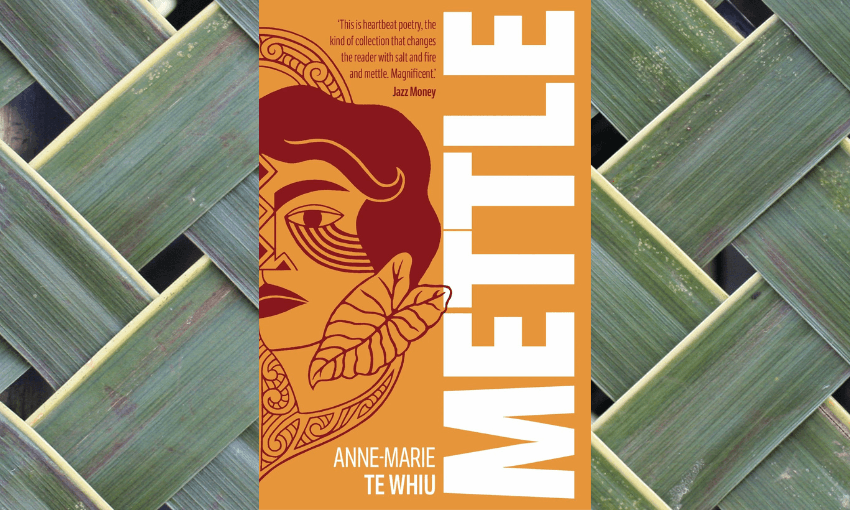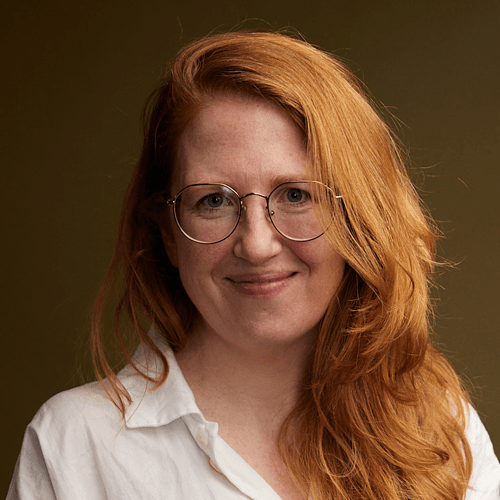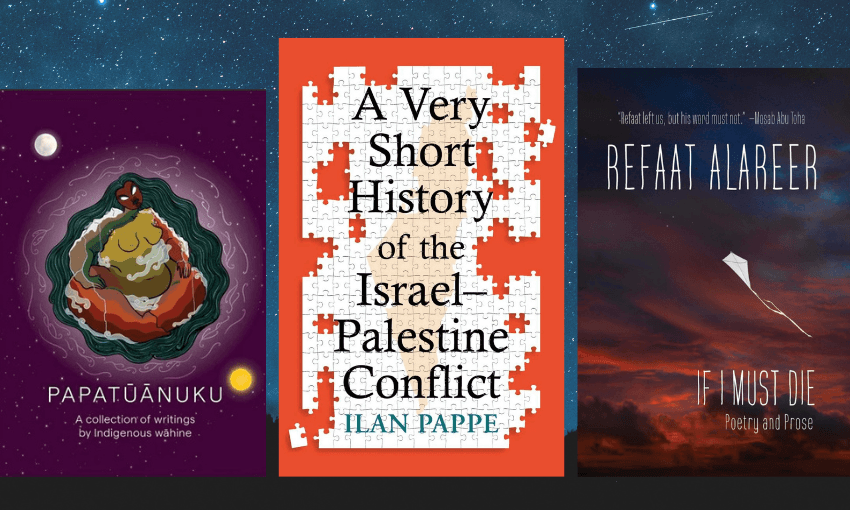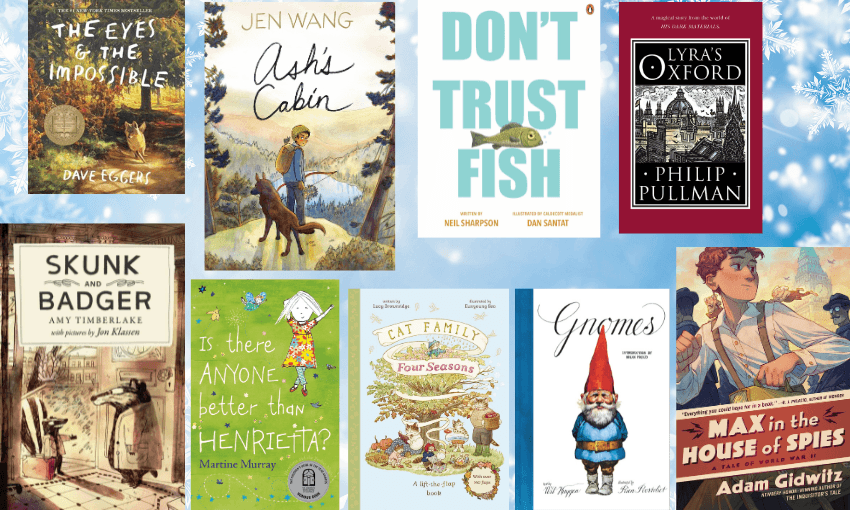Claire Mabey talks with poet, weaver, Atlantic Fellow and cultural curator Anne-Marie Te Whiu about her new collection of poetry, Mettle.
Claire Mabey: Kia ora Ani, it’s very nice to be talking to you about your beautiful poetry collection, Mettle. Why did you dedicate the book to your younger self?
Anne-Marie Te Whiu: Because she’s still here. You know that whole thing of you’ve got to be turning into the person that your younger self would have looked up to? I feel like now I’m 52 I’m just becoming that person, so I’m in conversation with her now, that little kid. It’s taken all these decades but it’s really beautiful.
CM: And why “mettle”? What does that word mean to you?
AMTW: Being a poet, I love playing with language. So when I tell people I’ve written a collection called Mettle, I love seeing their faces. You can see they’re thinking “Oh so you’ve written about the periodic table? Is it from a science lens? It is about, like, heavy metal?” I love that.
The reason I used “mettle” is because when I was doing research on my whakapapa and the connection with Whina [Dame Whina Cooper], my great aunt, I looked at archival works, newspaper articles, that kind of thing. I found that one of the words that was used to describe her was that she had “mettle” and that word just really struck me.
CM: So your whakapapa is here in Aotearoa, and you were born in Australia. What is that relationship like for you? Is your collection working into that?
AMTW: Exactly. It’s working to understand myself. I use poetry as a vehicle and a platform to work out who I am. What does it mean to have whakapapa? How do I acknowledge that whilst being born on and living on these unceded, stolen lands? How do I reconcile that relationship? It’s kind of reconciling with myself, really. It’s also a vehicle for understanding my siblings, particularly my youngest brother – for him to further understand who we are.
CM: I really like the poem ‘Blood Brothers’, where you’re trying to have a conversation with your brothers and they’re distracted by the stuff of daily life.
AMTW: Totally. Don’t you have that with your siblings?
CM: Yes! Do you relate to the idea that there’s always one sibling who seems to lead the family “work” so to speak? I’ve observed over the years that there often seems to be one in the family who works on whakapapa and makes the connections and reconnections. Does that ring true for you?
AMTW: 100% relate. I think that’s exactly right. I have three brothers, one who sadly passed away – but growing up I was always the fourth wheel. Like, we need to play handball and need a fourth, might as well be her.
CM: I was really also struck by your poem, the Letter to Keri Hulme that you’ve dedicated to essa ranapiri. Is it a fictional letter?
AMTW: You’re the fourth person to ask that! Like, what? No, it’s totally fictional. That was a gift of a poem that was written because essa, who edited Mettle, invited me to be part of a journal dedicated to the legacy of Keri Hulme. We were asked to create whatever we wanted.
But how awesome that you think that there’s the potential there for the letter to have been real. It brings me back to the question of “why poetry?” Poetry is a portal. It allows us to stretch and play.
CM: I love that. It feels like so many roads lead back to Hulme. Is there anything in particular about her work that you love?
ANTW: Her relationship to water. Watching tides, watching waves, reading waves; that’s what I really related to.
The writer Melissa Lucashenko embodies something of the way Hulme’s work enters into your blood. There’s something incredibly sacred about the way all the parts work together. There’s a power in Hulme’s work, and in Lucashenko’s too.
CM: You’re a weaver as well as a writer. There’s a poem in the book about having a “weaving hangover”. What does that mean?
AMTW: Have you been a weaver before?
CM: Never. But I used to paint a lot.
AMTW: Perfect. Here’s the comparison. Would you paint until 4am and then go, how did that happen? Then the next day what you did is still with you. That’s the kind of hangover I’m talking about. The number of nights I’ve had where it’s got to four, five in the morning just weaving.
CM: How does weaving relate to poetry for you? Or does it?
AMTW: It compliments poetry rather than that they definitely meet. But I lean on one and then the other, and throw in a couple of dog walks in there as well for physicality. They’re both practices that require being still so you gotta balance it with that physicality.
CM: Mettle is out in both Australia and New Zealand and I imagine they’re two really different audiences, in some ways.
AMTW: Massively. I don’t know if you got the little insert in the book when it arrived? It has this message explaining that Mettle delves into my whakapapa and then in brackets it says “Māori genealogy”. Obviously that’s so patronising and so unnecessary for the Aotearoa audience, and so imperative if I want to connect with this audience here in Australia.
I’ve had a couple of moments of “how do I bridge this?” But that’s the work. That’s our work as writers, producers, artists. We’re bridge builders.
CM: Have you had feedback on the book so far?
ANTW: I got a beautiful message on Instagram from a gorgeous Australian-born wahine, about a poem I have in the collection about understanding and not understanding in a te ao Māori space. To have feedback from someone that gets it is so sweet.
I’ve had feedback from the most important people who are my whānau. The book is for my younger self but we always write for those we love, too. Hopefully all my family will look at it and go, yeah, that’s great.
CM: In your acknowledgements you talk about a class you did at the IIML at Victoria University with Victor Roger. What was the impact of that class?
AMTW: It was so significant being in a room with other Māori and Paskifika writers. Nafanua [Percell Kersel] was there, Nicole Titihuia Hawkins, Kahu Kutia, and a whole bunch of amazing writers. Victor led our waka in such a joyful and challenging way.
It was a very, very profound experience.
Blood Brothers
i recite a karakia for my brothers
they would prefer i bring kebabs
i tell them about the Hokianga
they tell me about their bills
i explain tangata whenua
they turn up the TV
i dream of Tāne Mahuta
they roll a cigarette
i summon the names of our ancestors
they take their medication
i miss our marae
they put out the bins
– Anne-Marie Te Whiu
Mettle by Anne-Marie Te Whiu ($30, University of Queensland Press) is available to purchase from Unity Books.






